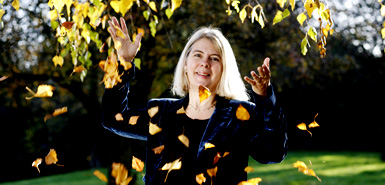Study Links Dense Breast Tissue To A Higher Risk of Breast Cancer
Once again – misinformation from the allopathic cancer doctors and their handlers. They leave out probably the *most* important piece of information and that is NOT that the dense breasts are what leads to cancer but the fact that because of the dense breasts, they get more mammograms recommended and given, in the relentless quest by the cancer machine to find the cancer that they know is lurking there. The dirty little secret they DON’T want you to know is that the repeated radiation and compression of the breasts will eventually find cancer BECAUSE THEY CREATED IT IN THE FIRST PLACE!
Monday, January 07, 2008 by: Cindie Leonard, MA
(NewsTarget) Nearly 40% of pre-menopausal women experience the symptoms of fibrocystic breast syndrome (this author refuses to label the condition a disease!) A recent study published in the September 1, 2007 issue of Cancer Research, reported findings suggesting a link between dense breast tissue and a higher risk of breast cancer. Studies of this nature produce a great deal of anxiety and alarm for women with fibrocystic breasts.
The study offered complex, scientific explanations supporting the link between dense breast tissue and a higher rate of breast cancer. Yet, the “gene hunters” at the Mayo Clinic overlooked one highly important confound: Women with dense breasts, on average, receive an absurd amount of radiation! An average diagnostic mammogram is not one x-ray, but a series of x-rays, usually two per breast. If a suspicious lump is discovered, there is no limit to the number of repeat x-rays. If a biopsy is performed, most likely there will be follow-up x-rays, or possibly x-rays as part of the biopsy (such as during the procedure of a needle localization). Each view can expose breast tissue to as much as 0.2 rad per x-ray (“rad” is a measurement of the radiation dose). It is important to note that radiation is cumulative. Each rad of 1.0 exposure increases the risk of breast cancer by one percent. Pre-menopausal women have breast tissue which is highly sensitive to radiation, possibly increasing the risk even more.
Whether or not a biopsy is performed, once a suspicious lesion is discovered, it is highly likely that another series of mammograms will be scheduled within six months, sometimes less. With some women, this debacle goes on year after year.
In a recent study involving 5,685 women, published in the July 15, 2000 issue of the International Journal of Cancer, the association between diagnostic radiation exposure and breast cancer was examined. The results of this study conclude that some forms of low-dose radiation may increase the risk of breast cancer. The study also found that women who underwent diagnostic chest x-rays for pneumonia or tuberculosis had more than twice the normal risk of breast cancer.
…
It is unfortunate that these recent studies suggesting the link between dense breast tissue and a higher risk for breast cancer did not include the possibility that dense breasts receive, on average, more radiation due to repeat diagnostic x-rays. Sensitive, delicate breast tissue is routinely zapped with harmful, accumulating radiation and this fact was not mentioned, nor explored in these widely published studies.
In recent years, advances in ultrasound technology allow for an x-ray free, highly effective diagnostic tool. Being that ultrasound is more expensive and time-consuming, the mammogram is the standard for repeat examinations. The appeal of ultrasound would be further bolstered with more conclusive research about the radiation exposure associated with mammography. In conclusion, studies reporting a link between fibrocystic breasts and an increased risk of breast cancer should include (or at least mention) the possibility that the higher cancer risk may be caused by the increased exposure to radiation due to mammography.
About the author
Cindie Leonard has a Master’s degree in Counseling Psychology and is a Certified Hypnotherapist.
You May Also Like

